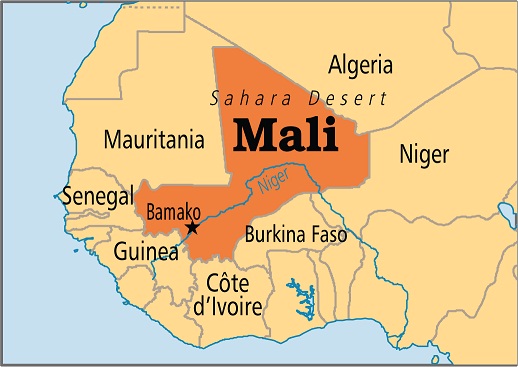French forces advanced Sunday towards Mali’s north after taking up positions in the towns of Niono and Sevare, a spokesman for the French military operation codenamed Serval said Sunday.
French forces advanced Sunday towards Mali's north after taking up positions in the towns of Niono and Sevare, a spokesman for the French military operation codenamed Serval said Sunday.
"The deployment towards the north of the forces of Operation Serval, which began 24 hours ago, is on course with troops inside the towns of Niono and Sevare," Lieutenant Colonel Emmanuel Dosseur told reporters.
 Earlier Sunday, Malian and French troops reportedly patrolled the outskirts of the contested town of Diabaly as Paris, Russia and Canada offered to help transport foreign troops to defeat rebels in northern Mali, AFP reported.
Earlier Sunday, Malian and French troops reportedly patrolled the outskirts of the contested town of Diabaly as Paris, Russia and Canada offered to help transport foreign troops to defeat rebels in northern Mali, AFP reported.
The news agency quoted a Malian security official, who spoke on condition of anonymity, as saying that “this mission of observation and dissuasion is mainly aimed at stopping any infiltration southwards by the militants.”
There are conflicting reports of whether the Islamists still hold the strategic outpost of Diabaly, about 400 kilometers (250 miles) north of the capital Bamako.
Other reports said the radical Islamists were leaving areas under their control in the extreme north for the mountainous region of Kidal, 1,500 kilometers from Bamako and near the border with Algeria.
"The jihadists are increasingly leaving other areas to go towards Kidal which is a hilly region," AFP quoted another Malian security official as saying.
A municipal official from the town of Douentza, about 800 kilometers from the capital, backed up the claim, saying: "They are fleeing. All indications show that they are seeking refuge in Kidal, which is difficult to access."
In this context, French Foreign Minister Laurent Fabius said on Sunday that Russia had offered to help transport French troops and supplies to Mali and that Canada was to help to bring African troops to the country.
Asked on Europe 1 radio about how African troops would be transported, Fabius told said "there is transportation that will be partly by the Africans themselves, partly by the Europeans and partly by the Canadians."
"And the Russians have proposed to provide means of transport for the French, so it's fairly diverse," he said.